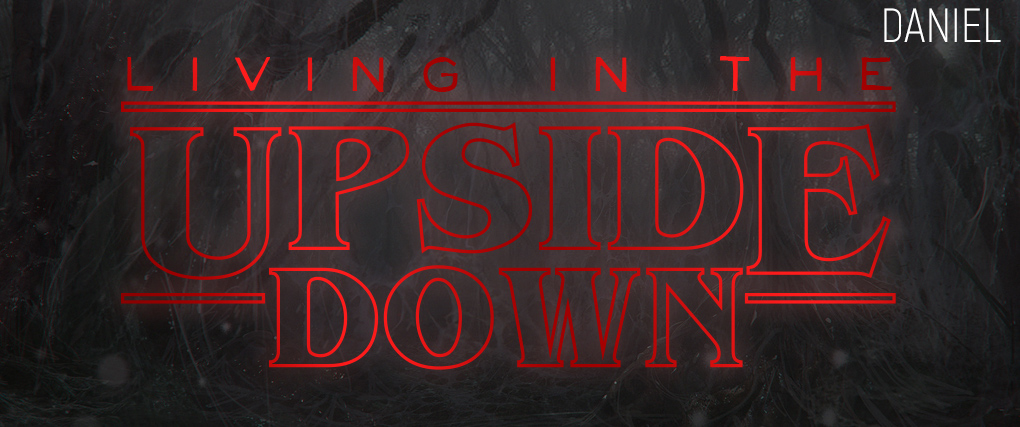Date: Nov. 9, 2014
1 Kings 12:1-24
Key Verse: 1 Kings 12:15
“So the king did not listen to the people, for this turn of events was from the Lord, to fulfill the word the Lord had spoken to Jeroboam son of Nebat through Ahijah the Shilonite.”
In every nation there are laws that the residents of that nation must follow. Without this order there would be chaos. And if we don’t follow these rules, there are consequences for our actions. We have the freedom to do what we want, no one holds us back, but our actions have consequences. If you speed, eventually you’re going to get a ticket. If you steal, you’ll go to jail and if you cheat and lie, you can be a politician. Just joking about the last part. And just as this is true in the physical world, it’s also true in the spiritual world. Thus far in the book of 1 Kings, God has repeatedly said, “if you follow my commands and walk in my ways and do what is right, then I will bless you and be with you.” However we’ve seen how hard it is for people to do this. In today’s passage we begin to see the consequences of not following God.
Sin is a bad way of building up a family. I find it interesting that Solomon had 1000 wives and concubines and yet we’re only told about one son who would carry on his name. Rehoboam was the son of the wisest man of his time, and maybe of all time, and yet he didn’t inherit his father’s wisdom. Neither wisdom nor grace flows tough his veins. Solomon came to the crown very young, yet even at that age, he was a wise man. On the other hand, Rehoboam came to the crown at forty, when men should be wise if ever they will, yet he was foolish. From this we learn that wisdom doesn’t always come with age, nor with many years of education. Wisdom comes from the Lord and he may take it away if we don’t follow his commands. (Prvb 2:6, Hos 4:10) Solomon’s court was a warehouse of wisdom and a rendezvous for the wisest and most educated people, and Rehoboam, being Solomon’s successor, must have spent most of his time there; and yet this wasn’t enough to make him a wise man. There is a saying, “The race is not to the swift, nor the battle to the strong, but victory goes to the wise.” Unfortunately, victory was not in Rehoboam’s future.
Take a look at verse 1. “Rehoboam went to Shechem, for all Israel had gone there to make him king.” What do you see wrong with this verse? At first I didn’t see anything wrong with it either, but why did Rehoboam have to travel 15 miles north of Jerusalem to be crowned king? Upon the death of his father no dispute was made of Rehoboam’s succession, he was immediately proclaimed king but, not everything was alright. Shechem was an old city with a lot of history. It dated back to Abraham’s time when the Lord appeared to him there by a great tree and promised to give that land to his children. (Ge 12) Also Jacob’s daughter Dinah was raped by Shechem and Jacob’s sons got their revenge on them. (Ge 34) Shechem was a city of refuge for those who were accused of murder. (Jos 21) And Abraham, Sarah, & Joseph’s bones were buried in the city of Shechem. Jerusalem was known as the city of David, it was where the ruler of the southern tribes lived, but Shechem represented the 10 northern tribes. And the fact that David became king over the northern tribes on the basis of a covenant (2 Sam 5:3) suggests that their act of submission was to be renewed with each new king and that was subject to negotiation. So the people of Israel desired to make a treaty with Rehoboam at Shechem. They would give him a public inauguration in place other than the city of David, so that he would be recognized as king of all Israel and not Judah only. Their pretense was to make him king, however it was the Lord’s design was to unmake him. Shechem was known an ominous place, for it had a dark history as well, it was the place where Abimelech set himself up as leader and he and his men killed about a 1000 men and women by burning them to death in a building. (Jdg 9) And for all we know, Rehoboam may have known that the kingdom would be taken from him, and he may have hoped by going to Shechem, and making a treaty there with the ten tribes might prevent it. And yet we find that it actually pend up the process.
Take a look at verses 2-5. “When Jeroboam son of Nebat heard this (he was still in Egypt, where he had fled from King Solomon), he returned from Egypt. 3 So they sent for Jeroboam, and he and the whole assembly of Israel went to Rehoboam and said to him: 4 “Your father put a heavy yoke on us, but now lighten the harsh labor and the heavy yoke he put on us, and we will serve you.” 5 Rehoboam answered, “Go away for three days and then come back to me.” So the people went away.” When the leaders of the tribes addressed Rehoboam, they were hoping to be eased of the taxes they were burdened with. Once the meeting was scheduled, they sent for Jeroboam out of Egypt to come and be their speaker. They made an interesting choice as their representative, for he was the one that Solomon chased out of Israel because he was the one God had promised to give the kingdom to. And you can see how everything is being set up for a confrontation.
In their address, they complain about the last leader: “Your father put a heavy yoke on us.” (being election time, don’t it seem like we always complain about the last leader?? I really dislike Governor Quinn) So what did they complain about? It’s interesting that they didn’t complain of his father’s idolatry and abandonment of God; which was the greatest grievance of all and it was nothing to them, so careless and indifferent were they that they didn’t even mention it. In fact is seems from the text that it didn’t matter to them if they serve God or Moloch, they were all the same. The issue that was most important to them was that they might live at ease and pay lower taxes. Does that sound eerily familiar to you? What’s the biggest complaint we hear about these days around election time? The unemployment rate being too high, we are taxed too much. Thousands of years after Rehoboam’s time, and things haven’t changed much huh. I find that interesting.
Yet we could argue that their complaint was groundless. Never in their time period did people live more at ease and in great plenty than they did. Did they pay taxes, probably, but it was to advance the strength and magnificence of their kingdom. Solomon’s buildings did cost them money but one could argue that it was cheaper than blood, which is what war cost. Money can be replace, lives can’t. On the other hand weren’t they provided with employment? They weren’t put into forced labor. Were the taxes a burden? I’m sure but I think that Solomon did his best to lighten them by imported so much gold and silver was so plentiful that is was as common as the stones. So in the end, they did have to give to Solomon the things that were Solomon’s, but weren’t they told this before they asked God for a king? God told them that even the best governments will not be able to set itself up from reproach. That’s the nature of sin. And even good leaders are sinful. However in their request they are not free from guilt, because they didn’t ask to return to worshipping the one true God, they only asked that they could save a little more money by making their taxes lighter. Through this I’m convinced that our elections are more important than ever, and they should be about the moral direction of the country – for if our morals are right, the rest – taxes, laws, etc everything will follow.
So how did Rehoboam respond, take a look at verses 6-11. “Then King Rehoboam consulted the elders who had served his father Solomon during his lifetime. “How would you advise me to answer these people?” he asked. 7 They replied, “If today you will be a servant to these people and serve them and give them a favorable answer, they will always be your servants.” 8 But Rehoboam rejected the advice the elders gave him and consulted the young men who had grown up with him and were serving him. 9 He asked them, “What is your advice? How should we answer these people who say to me, ‘Lighten the yoke your father put on us’?” 10 The young men who had grown up with him replied, “These people have said to you, ‘Your father put a heavy yoke on us, but make our yoke lighter.’ Now tell them, ‘My little finger is thicker than my father’s waist. 11 My father laid on you a heavy yoke; I will make it even heavier. My father scourged you with whips; I will scourge you with scorpions.’”” It was smart of Rehoboam to seek the advice of his father’s men. After all, his father was a wise man and he probably would have had wise men around him as advisors. However even before considering their advice, he rejected their proposal. It would have been wise for him to have accepted because he lacked wisdom personally. Here we learn that if you don’t have wisdom, find someone who does and follow their advice.
The elders told him to give a kind answer, good words and promise to be fair to them. If he were to act like a servant to them, he would win them over. In other words, “Deny yourself (say they) and for this one day serve them and the people would be his servants forever. The way to rule is to serve, to do good, to become all things to all men and so win their hearts. Those who are in power, when they take this method usually do better with the people.
However, this is not what Rehoboam did. He rejects the elders’ advice and consults with the counselors his own age. Like Rehoboam, they are young, ambitious, proud, and insecure. They tell him to intimidate the crowd by declaring that he is tougher than Solomon. Their theory is that servant leadership will not work. Only a bully can handle a diverse kingdom. They were not wise, but boastful and proud. And their comment about his little finger and his father’s waist, in other translations it refers to his father’s loins and his finger is not really referring to his finger, if you get my point. They thought that a show of strength with threats was a better response to the people’s request. He went with the advice of his friends that he grew up with. This was an instance of Rehoboam’s weakness. It was foolishness for him not to prefer the aged counsellors and to think that, because they had been his companions in the sports and pleasures of his youth, they were somehow better fit to for the management of his kingdom. Sometimes young people in their pride, push aside older folks because they think they know better because they are younger, quicker and stronger. But this is not always the case. All of us, should be wise when seeking advice. If you think that advice is better from those who feed your pride, gratify your vanity, and further you in your desires, your “best friends,” then you’re setting yourself up for failure. Rather it is better to seek an unbiased, godly person who can give you an outside view for advice. Someone who can give you an honest answer and not just what you want to hear.
So Rehoboam answers the people according to the counsel of the younger men, except that he left out the vulgar comment about his little finger. Taking the counsel of unspiritual men always spells disaster. (James 3:15) Take a look at verses 13 & 14. “The king answered the people harshly. Rejecting the advice given him by the elders, 14 he followed the advice of the young men and said, “My father made your yoke heavy; I will make it even heavier. My father scourged you with whips; I will scourge you with scorpions.”” However in Rehoboam’s response, he makes a few mistakes. First he accepted the people’s comments about his father and thus tarnishes his father’s legacy. He could have pointed out all the good that his father did and how blessed a people they were. Highlight the good, play down the bad. That’s what a PR person would tell a political candidate these days. Don’t acknowledge the problem, ignore it. Secondly, he threatens them to take the thing his father did wrong and do it more harshly. Who could ever think this was a good idea. Not only would he tax them more, but whip them harder. Thirdly, how could he consider himself better than his father who was the wisest man in his era? He let himself be blinded by pride.
This makes you wonder, how could he have been so wrong and done such a foolish thing? Verse 15 gives us the answer. It reads, “So the king did not listen to the people, for this turn of events was from the Lord, to fulfill the word the Lord had spoken to Jeroboam son of Nebat through Ahijah the Shilonite.” What happened was God let Rehoboam do what he wanted. God left Rehoboam to his own folly, and hid from his eyes the things that were right. We should take note of this. God serves his own wise and righteous purposes by the imprudence and iniquities of men, and snares sinners in the work of their own hands. Those that lose the kingdom of heaven throw it away, as Rehoboam did his, by their own willfulness and folly. That’s a mouthful, let me say that again. God serves his own wise and righteous purposes by the imprudence and iniquities of men, and snares sinners in the work of their own hands. Those that lose the kingdom of heaven throw it away, as Rehoboam did his, by their own willfulness and folly. Ephesians 4:17-24 tell us, “So I tell you this, and insist on it in the Lord, that you must no longer live as the Gentiles do, in the futility of their thinking. 18 They are darkened in their understanding and separated from the life of God because of the ignorance that is in them due to the hardening of their hearts. 19 Having lost all sensitivity, they have given themselves over to sensuality so as to indulge in every kind of impurity, and they are full of greed. 20 That, however, is not the way of life you learned 21 when you heard about Christ and were taught in him in accordance with the truth that is in Jesus. 22 You were taught, with regard to your former way of life, to put off your old self, which is being corrupted by its deceitful desires; 23 to be made new in the attitude of your minds; 24 and to put on the new self, created to be like God in true righteousness and holiness.”
Please go to the audio for conclusion.






